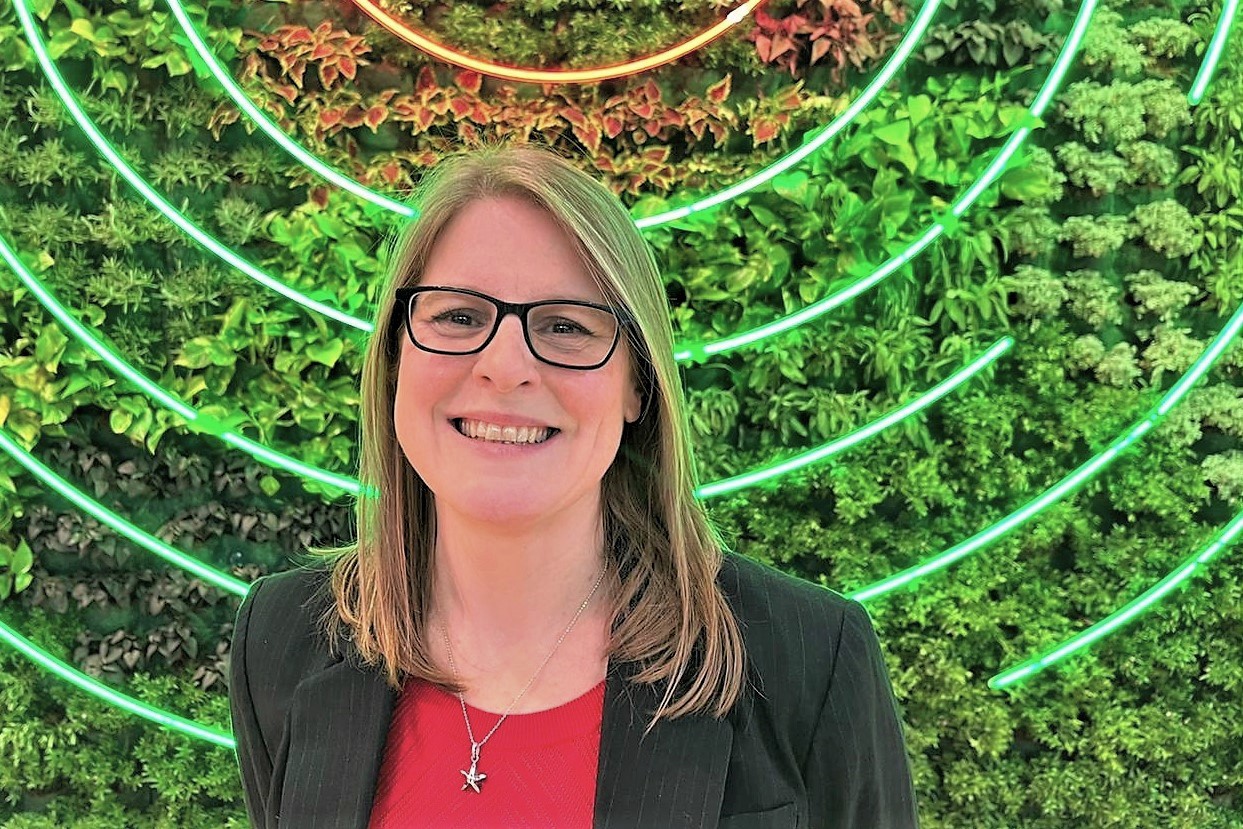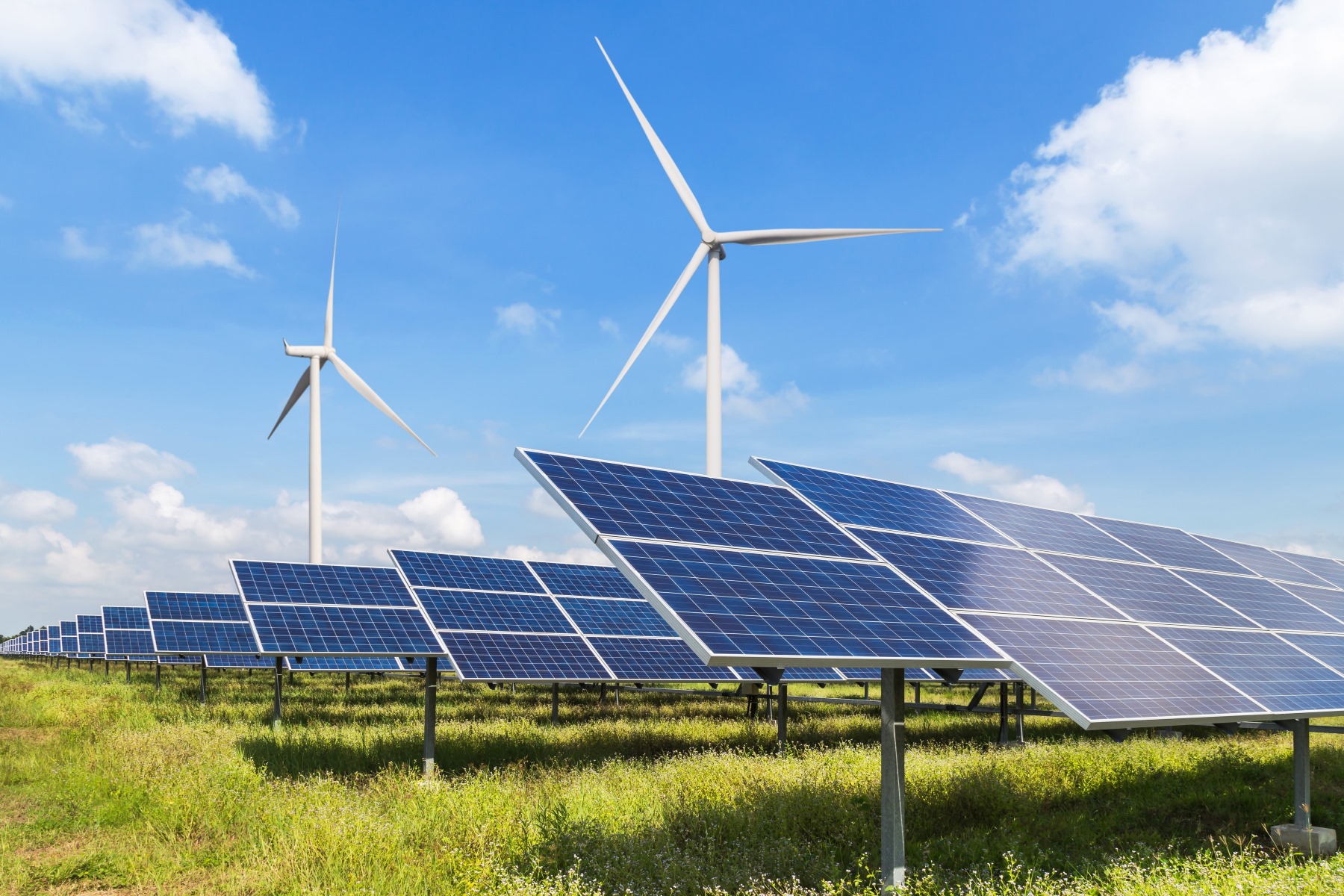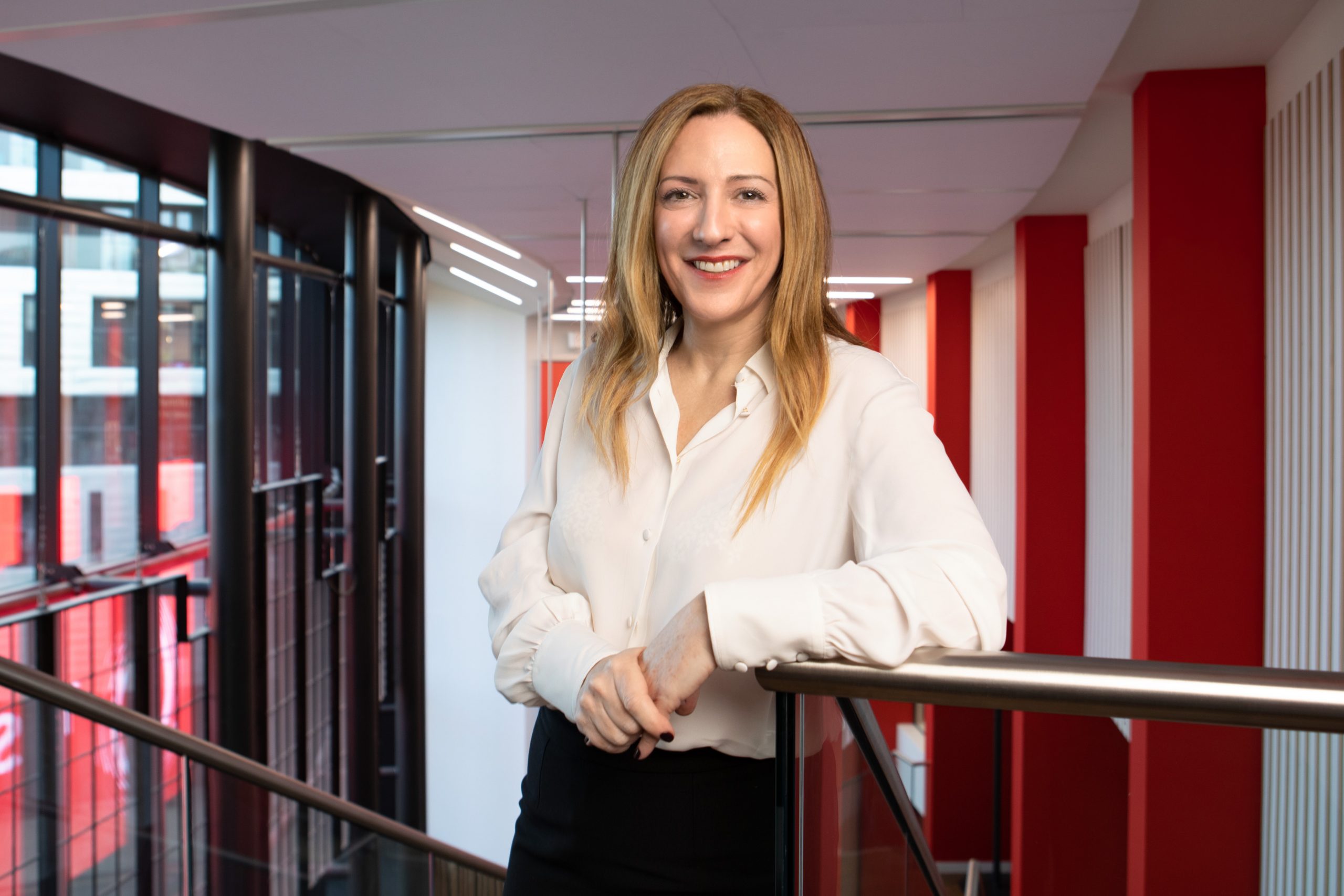As Vodafone celebrates International Women’s Week, we profile senior female managers helping the company achieve its green objectives. Today we meet Suki Gilliland, Senior Energy Manager.
Suliaka Gilliland – known as Suki – is Senior Energy Manager for Vodafone UK. Part of the Networks team, she is responsible for ensuring the company’s extensive network is as energy efficient as possible.
She and her team are also responsible for overseeing Vodafone’s UK commitment to reaching Net Zero carbon emissions for its own operations by 2027.
“It’s a big challenge,” Suki admits. “But it’s a real chance to put all my experience in energy to help Vodafone’s purpose. There’s credibility and due diligence behind everything we do.”
With an electrical engineering degree and a master’s in Energy Engineering, Suki has always been fascinated by energy management issues and sustainability, she says, given the pressing urgency and challenge of climate change.
“It drives me every day,” she says on a call from Barcelona’s Mobile World Congress where she was showing off Vodafone’s green initiatives on its stand.
Whether working for airport companies or security and defence contractors, Suki says she has always been motivated to “address all the energy inefficiencies I saw around; I just wanted to change things for the better”.
Greening the network
Her main job for Vodafone is reducing the company’s substantial energy bill, with the network accounting for 95% of the total. This entails spearheading pioneering projects, such as the self-powered mast that incorporates a wind turbine to generate energy.
Vodafone building self-powered 'Eco-Tower' mobile phone masts
The wind-powered masts will be trialled later in 2021 and could become a part of the Shared Rural Network and help Vodafone meet its net zero targets in the UK.
Potentially, such self-sufficient masts could be erected in remote places without the expense and upheaval of installing power lines across tough terrains, or the need to rely on diesel generators for energy. This would cut costs and carbon emissions while also improving connectivity in remote, rural areas.
“We’re also looking at onsite generation from other renewables such as solar panels on roof-tops,” says Suki. “It’s cost-effective, producing 5% to 10% of a site’s electricity consumption.”
The experimental Smartflower solar array at Vodafone’s Newbury HQ – which opens and closes like a sunflower – certainly garnered a lot of useful attention, Suki says.
How the solar Smartflower makes electricity all day long
Vodafone has installed an innovative solar energy ‘Smartflower’ at its Newbury campus - another step on its journey towards 'net zero' carbon emissions.
Mobile telephone exchanges and data centres need cooling and traditionally this was achieved using mechanical cooling systems which need their own power supply. Moving to natural air-cooling managed by artificially intelligent machine learning systems is also helping to reduce energy usage, she says.
Suki’s team also works closely with the Network Strategy and Engineering teams to evaluate and source the most energy efficient network equipment – Ericsson’s new reduced-energy consumption 5G radio and antenna launched in 2021, is an example. This collective expertise extends to advising Vodafone business customers on how to reduce their carbon footprints, too, through the use of building management systems, for example.
Another big task is condensing the network into fewer, more energy-efficient sites to reduce energy costs and emissions.
Breaking down barriers
With her electrical engineering background Suki was often the only woman in the room in what still is a male-dominated environment, she recalls.
“There were some challenges for sure, but I just had to learn to ‘lean in’ as they say and make sure my voice was heard.”
As someone who grew up on a council estate in Telford, Shropshire, she adds: “I’m still fighting to get more women into tech for sure, although for me, it’s about diversity as a whole – encouraging kids from disadvantaged backgrounds to apply.
“We need to change the perception that being an engineer is an ‘oily rag’ profession, like a car mechanic. There are so many other careers in this space, from coding to electrical engineering, data scientist to systems analyst. You can even be an energy manager like me!
“You just have to believe in yourself.”
Stay up-to-date with the latest news from Vodafone by following us on Twitter and signing up for News Centre website notifications.





![Nicki-Lead_image[OPTIMISED]](https://www.vodafone.co.uk/newscentre/app/uploads/2023/10/Nicki-Lead_imageOPTIMISED.jpg)

![White smartphone with screen from green leaves[Adobe Stock]](https://www.vodafone.co.uk/newscentre/app/uploads/2024/04/White-smartphone-with-screen-from-green-leavesAdobe-Stock.jpg)

![Falling Dripping Water Drop[Adobe Stock] Falling Dripping Water Drop[Adobe Stock]](https://www.vodafone.co.uk/newscentre/app/uploads/2024/04/Falling-Dripping-Water-DropAdobe-Stock.jpg)
![1-happy woman with cleaning agent and phone[Adobe Stock] stock image of a woman using a smartphone while wearing rubber kitchen gloves and holding a spray bottle](https://www.vodafone.co.uk/newscentre/app/uploads/2024/04/1-happy-woman-with-cleaning-agent-and-phoneAdobe-Stock.jpg)